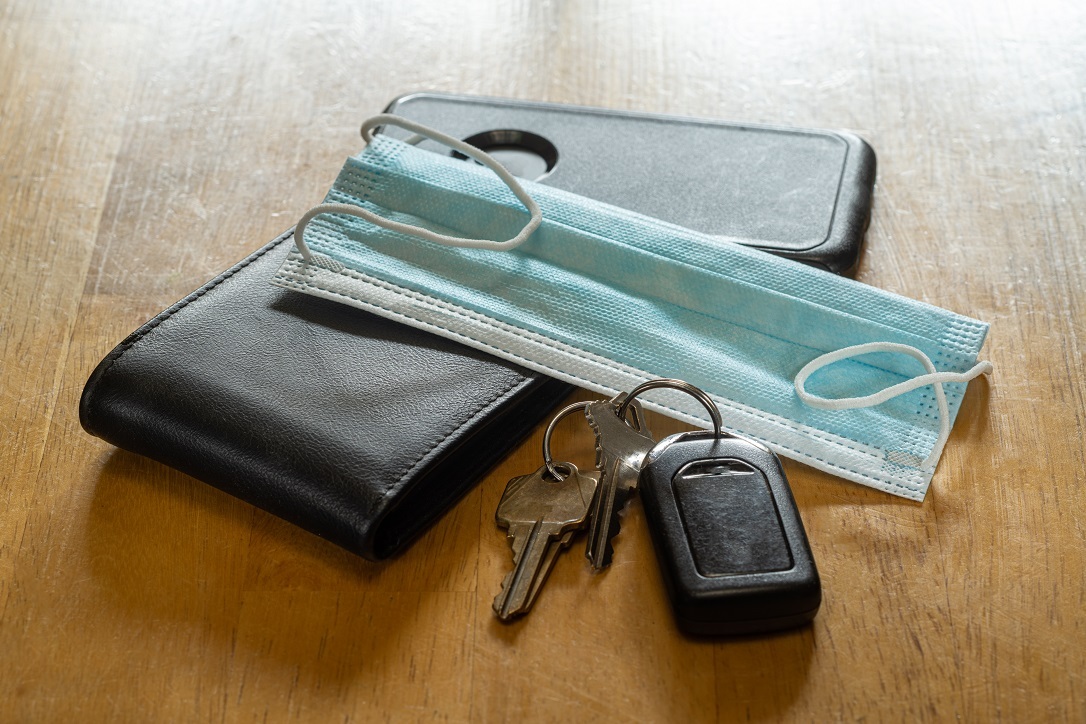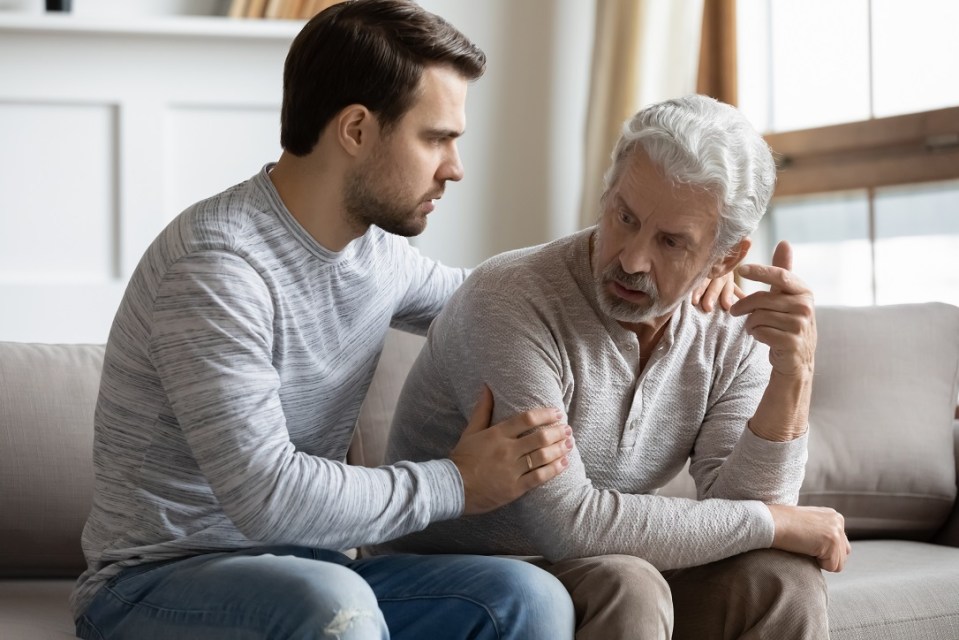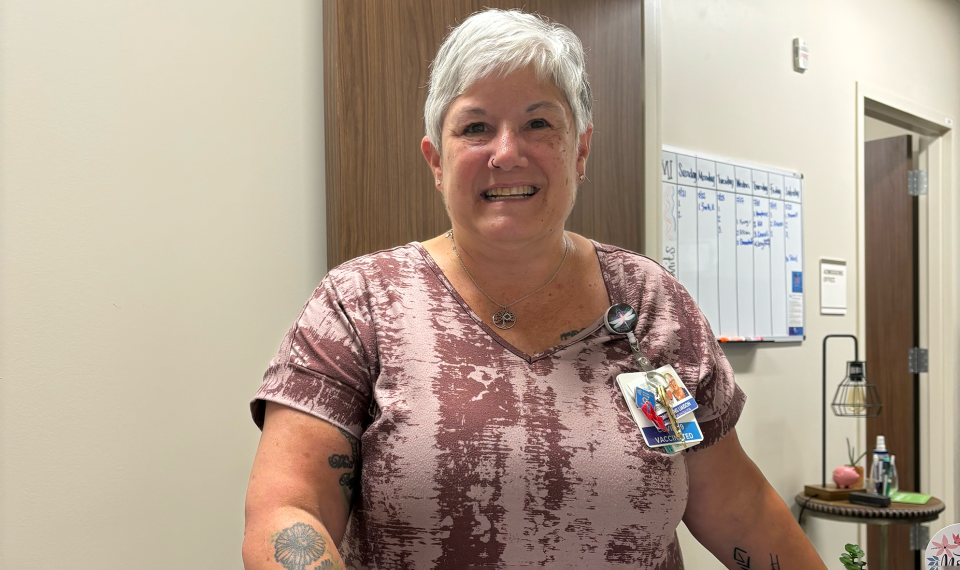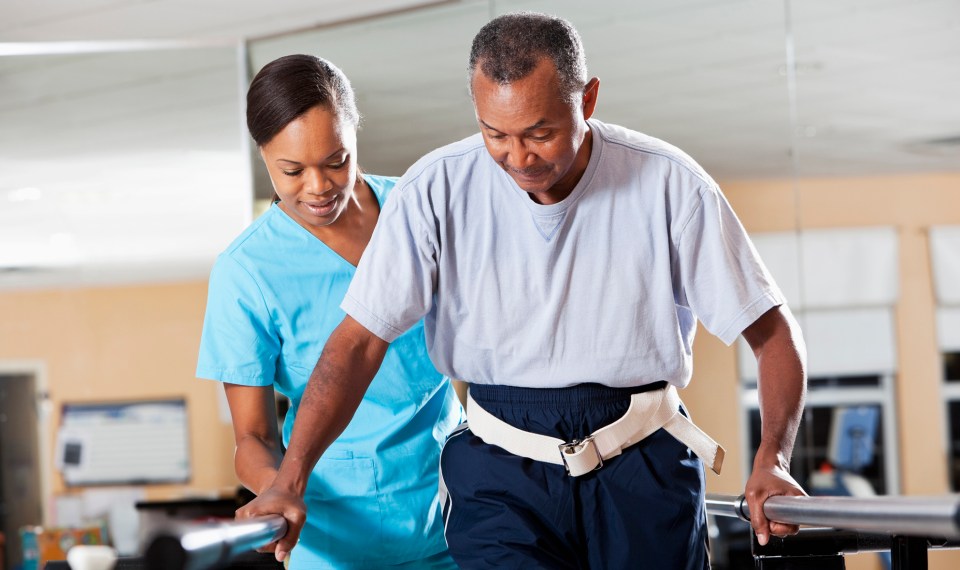Stroke is caused by a disruption of blood flow to the brain. Because our brain controls our emotions and behavior, you and your loved ones may begin to notice personality changes after stroke. Personality refers to the characteristic patterns of behavior, thinking and emotions of an individual. Stroke signs and symptoms can vary, and like the physical effects of stroke, personality changes vary greatly depending on which part of the brain the stroke affected. “If damage occurs in the frontal lobe, for example, a formerly cautious person may become impulsive and disorganized,” said Jennifer Howland, therapy team lead at AnMed Health Rehabilitation Hospital.
Different parts of the brain, control different aspects of your physical and mental abilities, as well as your personality.
- Frontal lobe: Control of voluntary muscles, personality, concentration, empathy, organization, behavior control and problem-solving
- Parietal lobe: Touch, pressure, temperature, understanding speech and expression of thoughts
- Temporal lobe: Ability to understand language, hearing, memory and organization
- Occipital lobe: Perception and processing of visual information
Personality Changes are Common
After a stroke, you might feel more anxious, lose interest in hobbies or laugh or cry uncontrollably. These symptoms may be upsetting to you and your loved ones and can affect quality of life. According to the American Stroke Association, personality changes are common after a stroke, but often go undiagnosed, so it’s important to speak with your doctor to identify and treat these changes.
Anger, Irritability and Aggression
Anger, irritability and aggression occur for many whose stroke affected the frontal lobe, the part of the brain that helps control emotions. If you are dealing with these personality changes after a stroke, you may become easily angered at those around you over trivial matters.
Anxiety
Anxiety disorders can differ but are typically characterized by excessive and irrational fear and difficulty or distress in managing daily tasks. This can be exacerbated when you are struggling to perform activities of daily living after your stroke. Both physical and occupational therapies focus on rebuilding skills that you most depend on and re-establishing independence, which in turn can calm anxieties.
Depression
According to American Stroke Association, approximately 30% of stroke patients develop depression in the five years following stroke. Physical limitations, health concerns and changes to the brain due to stroke can cause depression. The symptoms may include fatigue, apathy, loss of interest or pleasure, and decreased concentration. You should be assessed by your physician to determine the nature of these changes to formally diagnose. The condition is typically treatable with a combination of medication and counseling.
Impulsiveness
Impulsiveness is characterized by an inability to think ahead or understand consequences. It’s more common if the stroke occured on the right-side or frontal lobe of your brain. Impulsive behavior could include overindulgence, oversharing of personal matters, ignoring signs of danger and escalating minor problems into more urgent ones.
Pseudobulbar Affect (PBA)
PBA is a neurological condition caused by damage to the brain. It’s characterized by intense and often inappropriate displays of emotion that have nothing to do with how you truly feel at the moment. For example, you may suddenly laugh when seeing someone hurt or cry in response to a joke.
These behaviors may have a negative impact on relationships leading to feeling of isolation or making other post-stroke changes such as anxiety and depression worse. Triggers to these emotions could include fatigue, noise and overcrowded environments.

Forgetfulness and Confusion
Due to brain damage from a stroke, you may experience cognitive deficits and struggle to understand concepts you previously understood or become forgetful. Loss in cognitive function can result from stroke in any region of the brain, but it is most common in those who had a stroke in the frontal, parietal or temporal lobe of the brain. Tips to manage forgetfulness and confusion include:
- Designate specific places for items you use frequently like your wallet or coat
- Keep a notepad with important information, and organize it by section like phone numbers and medications
- Create and stick to a routine to minimize stress
- Use a reminder app on your smartphone for things like appointments, when it’s time to take medications and remembering to get the mail
Seeking Treatment
Personality changes after stroke are challenging, but rehabilitation and therapy can help improve recovery. Recognizing the symptoms and seeking help is the first step. Talk to your health care provider and be open and honest about what you’re experiencing. Recovery may include:
- Physical and occupational therapy to help you re-learn the skills that might have been impacted by the stroke to help you regain your independence.
- Restorative therapy to practice repeating skills over and over to retrain the brain to perform the tasks with less difficulty.
- Compensatory therapy to help you work around injury, often with the aid of special devices. This may include devices that assist with speech, calendar and memory tools and alarms to regain attention.
- Cognitive behavioral therapy, which focuses on examining the relationships between thoughts, feelings and behavior if you are struggling with depression, anxiety and PBA. This type of therapy explores thought patterns that lead to self-destructive actions and the beliefs that direct them.
- Support groups offer you and your loved ones a safe space among a group of people that understand what you’re going through. If you’re not sure if there are groups near you, use the ASA Stroke Support Group Finder.
- Self-care for caregivers: Caring for a loved one after stroke can take an emotional toll on caregivers too! “If you’re the caregiver, have a lot of patience. Remember that the changes are due to brain damage,” Howland said.
Life After Stroke
Find valuable information on managing your or a loved one's life after a stroke in our free Life After Stroke Guide.
Download nowThe content of this site is for informational purposes only and should not be taken as professional medical advice. Always seek the advice of your physician or other qualified healthcare provider with any questions you may have regarding any medical conditions or treatments.



